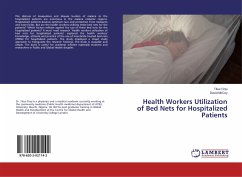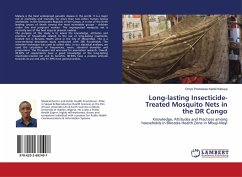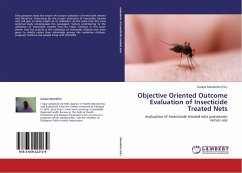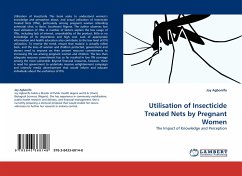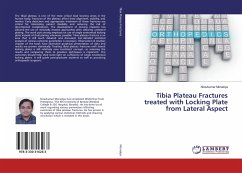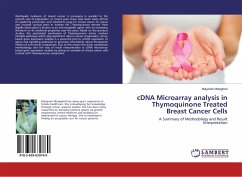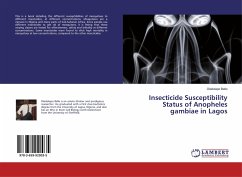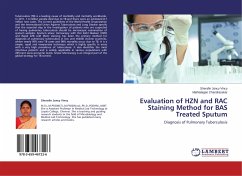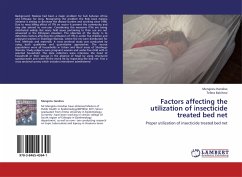
Factors affecting the utilization of insecticide treated bed net
Proper utilization of insecticide treated bed net
Versandkostenfrei!
Versandfertig in 6-10 Tagen
32,99 €
inkl. MwSt.

PAYBACK Punkte
16 °P sammeln!
Background: Malaria had been a major problem for Sub Saharan Africa and Ethiopia for long. Recognizing the problem the Role back malaria initiative is aiming to decrease the disease burden and working since 1998. Due to mass killing effect of ITN on vector it prevent the community and may also extend to non-user. Considering this measures ITNs are being distributed widely. But many field issues pertaining to their use are not answered in the Ethiopian situation. The objective of the study: Is to determine factors affecting the utilization of ITN in under five children and pregnant women in Sha...
Background: Malaria had been a major problem for Sub Saharan Africa and Ethiopia for long. Recognizing the problem the Role back malaria initiative is aiming to decrease the disease burden and working since 1998. Due to mass killing effect of ITN on vector it prevent the community and may also extend to non-user. Considering this measures ITNs are being distributed widely. But many field issues pertaining to their use are not answered in the Ethiopian situation. The objective of the study: Is to determine factors affecting the utilization of ITN in under five children and pregnant women in Shashogo Woreda, where the ets were distributed for free. Methods and materials: A cross sectional study was conducted by using both qualitative and quantitative approaches. The source populations were all households in Urban and Rural areas of Shashogo Woreda. Study subjects were pregnant women and under-five child with in selected household. The data collectors were interview the head of household or their spouse in the absence of head by using structured questionnaire and were fill the check list by inspecting the bed net. First a cross sectional survey which includes interviewer administered



